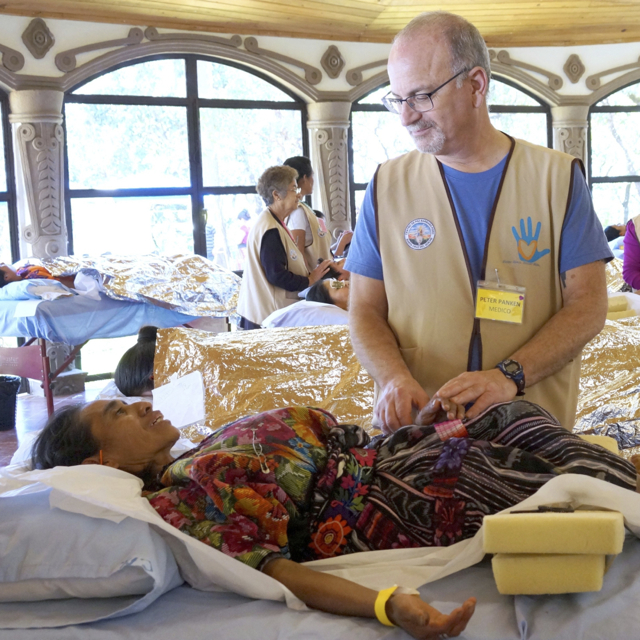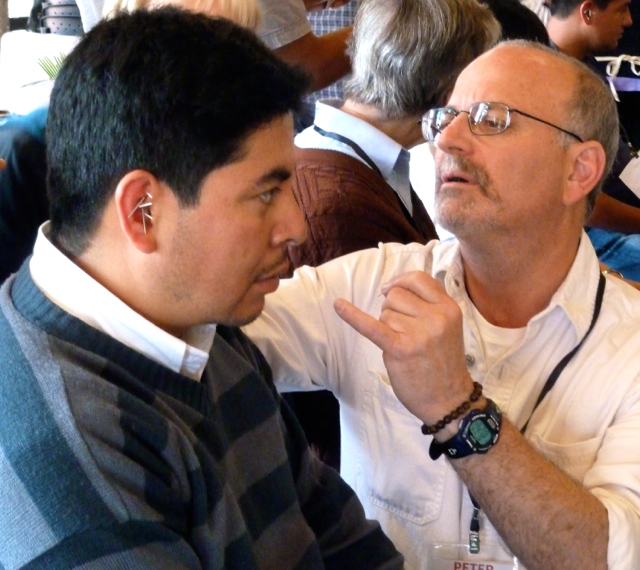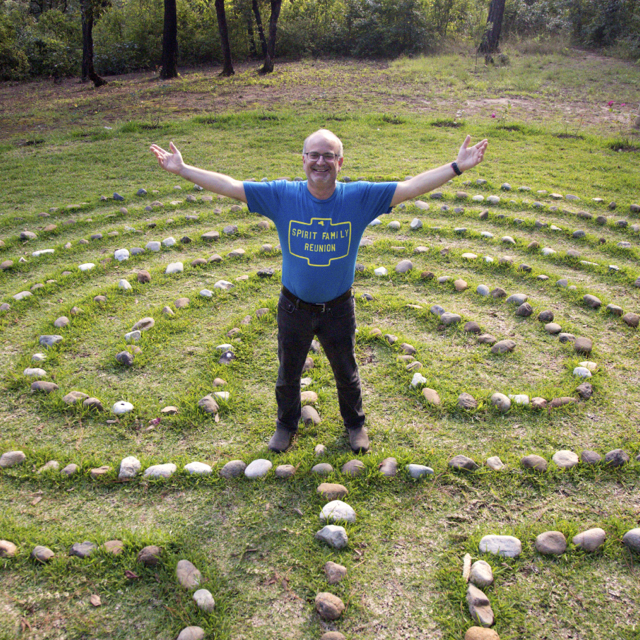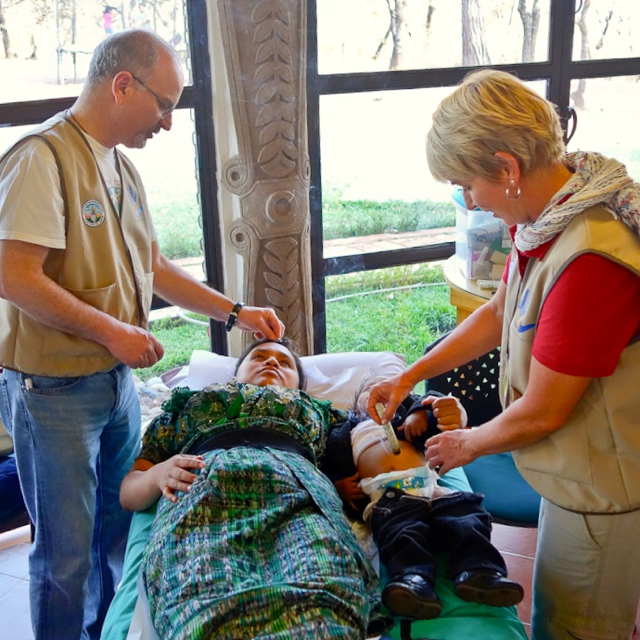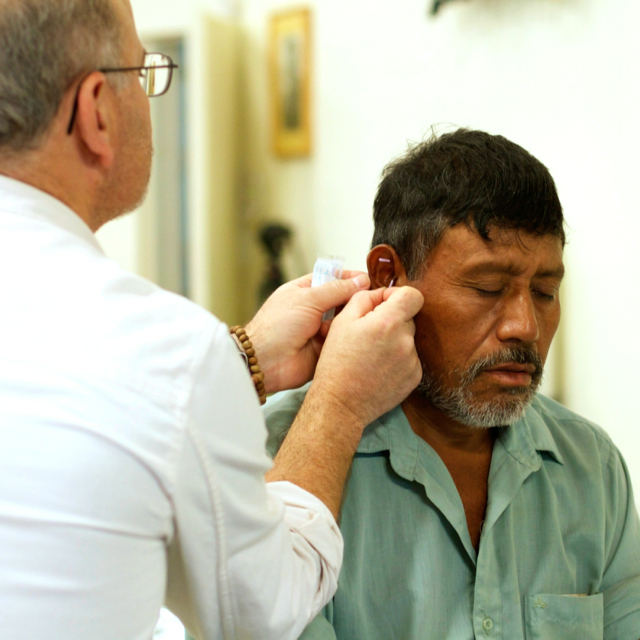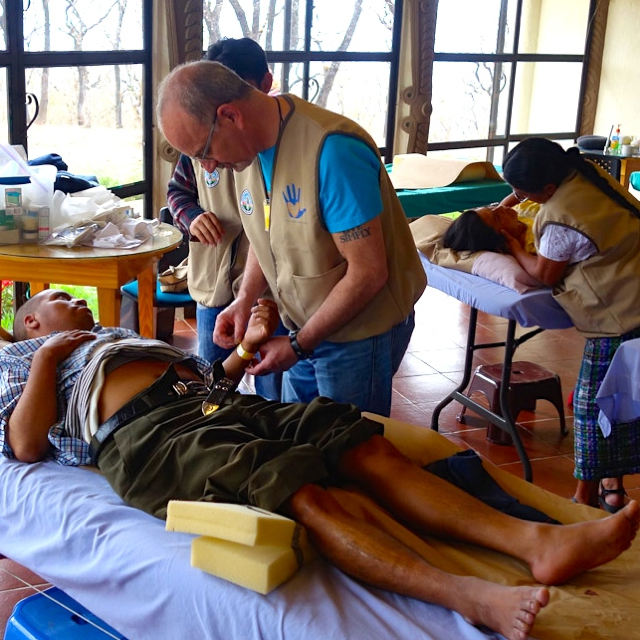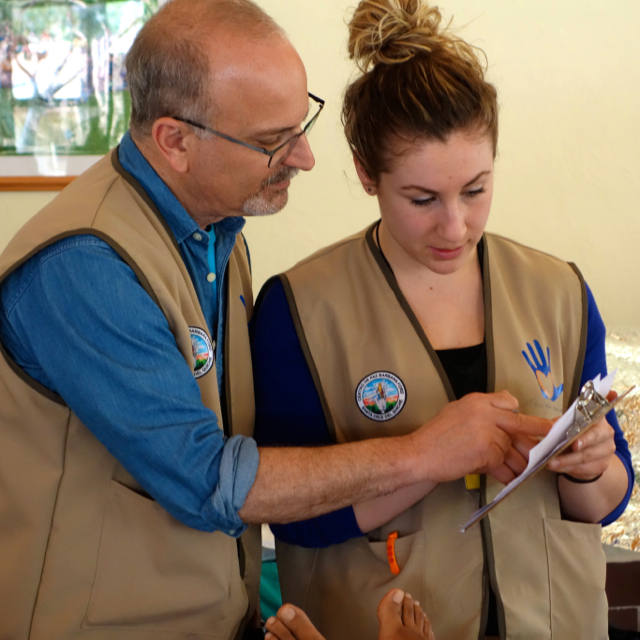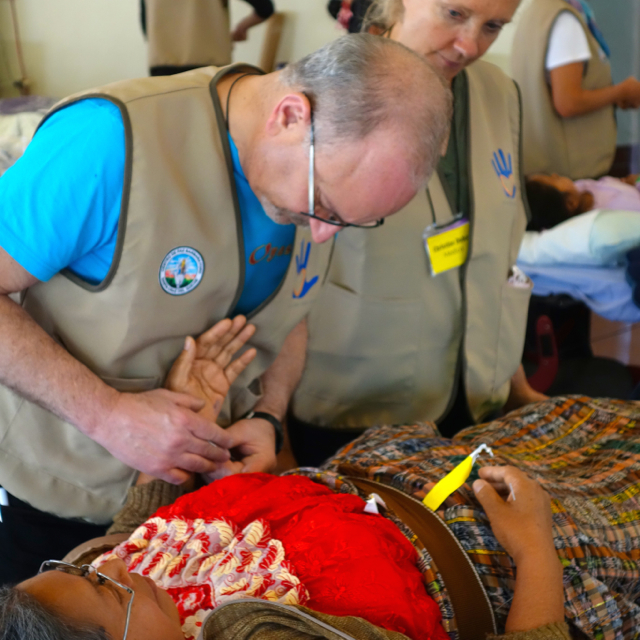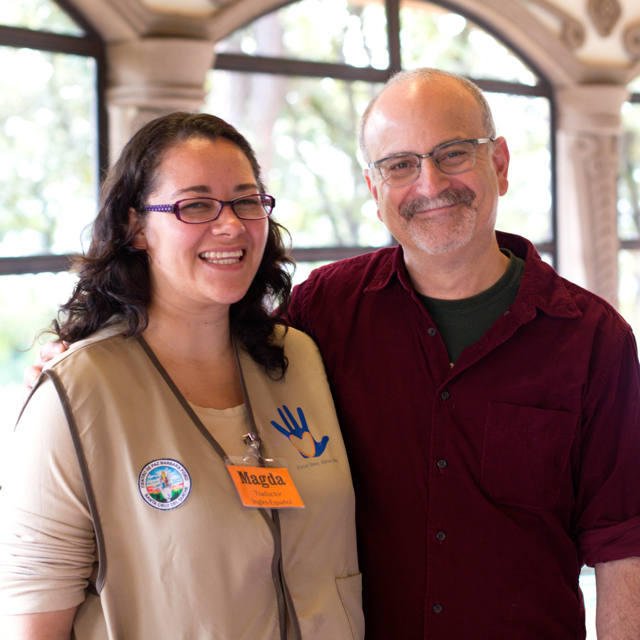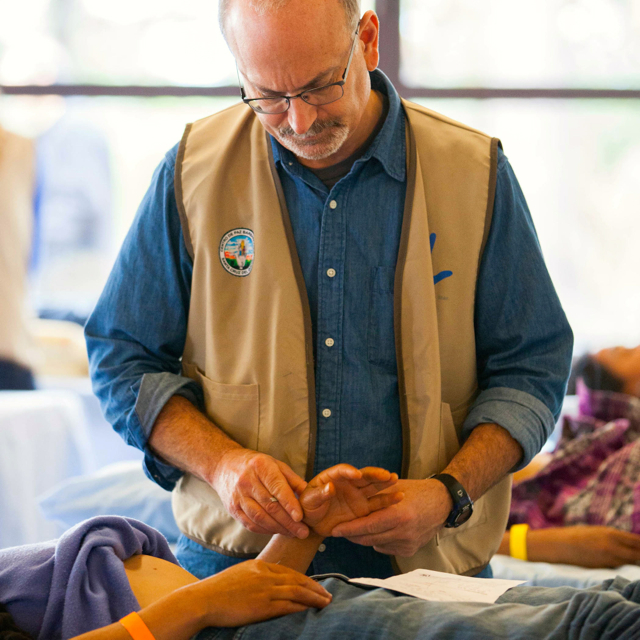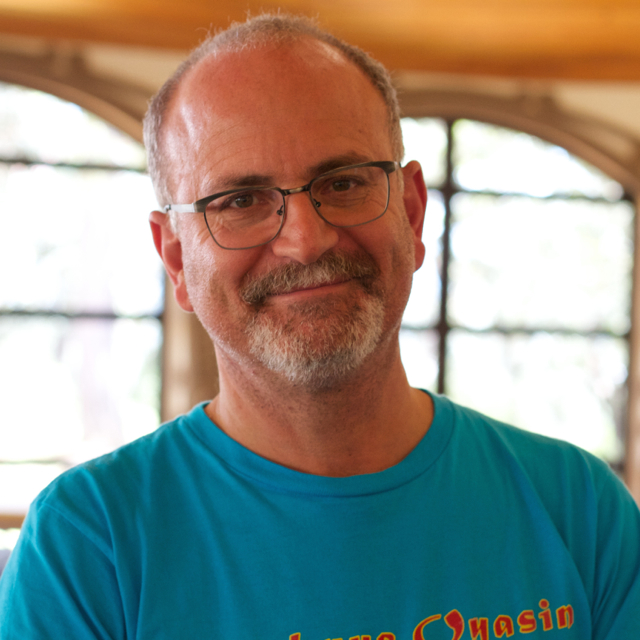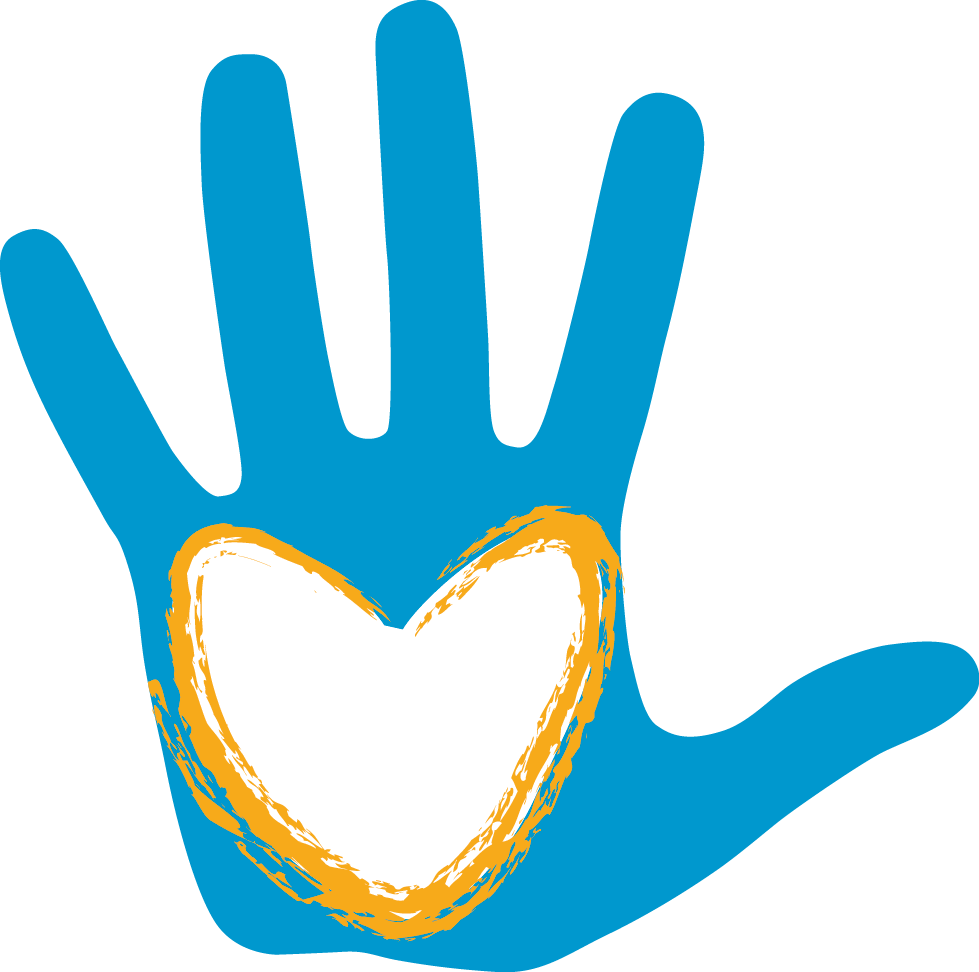Peter Panken has been treating some of New York City’s most vulnerable populations for nearly twenty years and has volunteered on numerous GHF medical missions in both the United States and Guatemala since 2008. Peter always figures out a compassionate way to connect to people and help them identify small ways to alleviate their struggles. He is one of our all-time favorite people! Read all about Peter's story below.
Modeling Kindness and Compassion: Peter Panken’s Reflective Perspective on Acupuncture
When you ask friends and colleagues what sets Peter Panken apart from other acupuncturists, the response is nearly always the same: He will treat anyone and anywhere regardless of life experience or location. “Peter works with people who are really suffering—people who are poor, living with HIV/AIDS, or living with addictions,” says Boris Bernadsky, an acupuncture student who volunteers with Peter at integrative health clinics in New York and Guatemala. “He approaches everyone with this incredibly nonjudgmental attitude.” Adds Dan Wunderlich, Founder and Executive Director of Global Healthworks Foundation (GHF), “Peter will work with any underserved community without hesitation or judgment. He sees all people as one human family and treats patients according to that belief.”
A Brooklyn-based licensed acupuncturist, Peter has been treating some of New York’s most vulnerable populations since 1998. Outside of his professional work, he runs a free clinic for New Yorkers suffering from addiction and HIV/AIDS and has volunteered with Dan on various medical missions in both the United States and Guatemala since 2008. Regardless of where he treats, Boris says, Peter is able to create a space in which patients can begin or continue their healing process. “He doesn’t claim to know the intricacies of people’s lives—to understand why those chose the path they chose,” Boris explains. “He may not know where you’re coming from, but he will always support you in where you’re going.”
“I just try and communicate to patients that I’m glad they’re there for treatment,” Peter says of his approach to acupuncture. “Then I look at the place where they’re the most stuck. People around the world feel stuck. They feel hopeless. But there’s usually a little more wiggle room than they realize, which gives me a little dose of hopefulness. I try to give that hopefulness to patients.”
Twice a year, Peter brings along that sense of hopefulness to Quiché, Guatemala for GHF’s week-long jornadas (medical missions) where he and between fifteen to twenty other volunteers offer integrative healthcare to largely impoverished, Mayan communities. While he enjoys the trips for a variety of reasons, Peter says, he feels most appreciative for the opportunity to “give back to others” and satisfy what he sees as an obligation to “try and increase awareness of suffering around the globe.” As he explains, “I have a life that is kind of made easy because of my background. I’m a white-skinned male living in America. But I’m also aware of what’s happening on our planet to people who are different from me—the depletion of resources, rates of poverty, etc. It’s important that we consider others’ experiences and share the knowledge we gain from those experiences.”
That “global, reflective perspective” Dan says, takes Peter’s already high-quality treatments to another level. “My take is that by deeply understanding the nature of others' suffering, Peter figures out a compassionate way to connect to people and help them identify small ways to alleviate their struggles. Modeling kindness and compassion in every interaction, and with every treatment, he opens his heart to show patients that he cares for their happiness and wellbeing.”
“By deeply understanding the nature of others' suffering, Peter figures out a compassionate way to connect to people and help them identify small ways to alleviate their struggles.”
And Peter also cares for the wellbeing of fellow volunteers and staff. Over the past couple jornadas, Peter and his primary Spanish-to-English interpreter, Magda Garza, a resident of Santa Cruz del Quiché, have developed “una amistad (a friendship),” she says, and a mutual admiration for each other’s work. “Han sido varias veces las que he trabajado para Él como su traductora (There have been many times in which I have worked for him as his translator),” she explains. “He podido conocerlo, y hemos hablado de cosas un poco personales. Él es un buen oyente. Él les da el mismo trato a todas las personas, incluso los otros voluntarios. (I have been able to get to know him and we have talked about personal things. He is a good listener. He takes care of all people, including other volunteers.)”
“I just try to listen to her,” Peter says of his relationship with Magda. “I’m interested in her life and the struggles she may have, and I’m supportive of her. That stands out to me as being an important part of these trips: She’s part of the collateral effects we generate. She’s not in the target patient group, but she’s part of the people who receive support.”
The combination of that seemingly unending support and Peter’s awareness of the more economic, social, and political circumstances in which patients live allows him to model a style of treatment that younger, less experienced acupuncturists might not otherwise learn in school. “Peter has taught me some important lessons,” Boris says, “the most important of which is that it doesn’t matter what your background is. You can still relate to people and meet them on a human-to-human level. Even if your needles aren’t perfect, just being there is an essential part of the treatment.”
Though Peter goes beyond “just being there,” as Boris notes, his welcoming and compassionate presence is often enough to impact a life—whether in the rolling highlands of Quiché or the bustling metropolis of New York.
